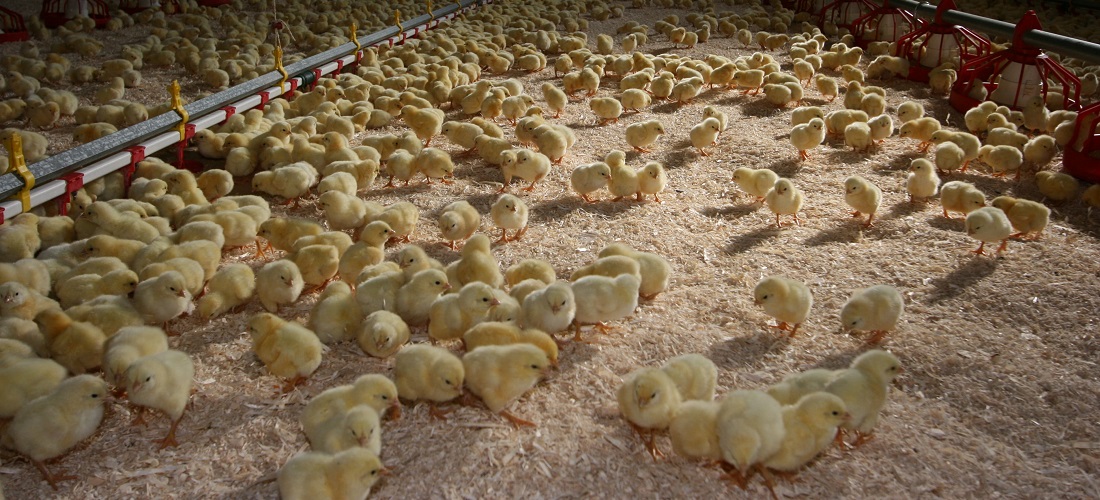Translation: Carlos Dias

Government rules out new cases of Newcastle Disease after tests
Jul, 22, 2024 Posted by Gabriel MalheirosWeek 202430
The Ministry of Agriculture announced on Sunday (7/21) that three suspected cases of Newcastle Disease were ruled out after analyses of samples collected at three properties in Rio Grande do Sul revealed negative results for the virus. These places are located in the protection zone defined by the State’s Animal Health Surveillance and Defense team after a confirmed outbreak of the disease at a commercial poultry farm in the city of Anta Gorda last Thursday (07/18).
In a statement, the ministry said, “The negative results are an extremely positive indication of the containment of the sanitary event [Newcastle Disease],” and that “the tests are important for the rapid resolution of the situation and also reinforce the robustness of Brazil’s agricultural defense system.”
“It is President Lula’s request to handle the case with complete transparency to reassure the population and importing countries about the safety of our agricultural defense system. I am confident that with the agility of our teams, we will return to normal exports very soon,” said Minister Carlos Fávaro in the statement.
After the confirmation of the Newcastle Disease outbreak in Anta Gorda, the Brazilian government temporarily and preventively suspended the export of poultry meat and by-products to more than 40 countries. The suspensions vary according to the international sanitary certificates agreed with each country.
On Friday night, the ministry announced that sales of poultry products from all of Brazil are suspended to China, Argentina, and Mexico. From Rio Grande do Sul, exports are restricted to South Africa, Saudi Arabia, Bolivia, Kazakhstan, Chile, Cuba, Egypt, the Philippines, Peru, the United Kingdom, countries of the European Union, and the Eurasian Economic Union, Uruguay, and others. Within a 50 km radius of the outbreak, exports are restricted to countries such as Canada, South Korea, Israel, and Japan.
The temporary suspension of exports is expected to impact 5% to 7% of national production, estimated the Brazilian Animal Protein Association (ABPA) on Friday. Brazil is the world’s largest exporter of chicken meat, shipping about 430,000 tonnes per month. Considering the volume usually purchased by the countries affected by the measure, ABPA estimates that 50,000 to 60,000 tonnes of chicken meat will have to be redirected to the domestic market or other importers.
The following chart provides an overall view of Brazilian poultry meat exports (measured in TEUs) between January 2021 and May 2024. The data comes from DataLiner.
Poultry Meat Exports | Jan 2021 – May 2024 | TEUs
Source: DataLiner (click here to request a demo)
One of the major concerns of both the private sector and the federal government is China, the largest importer of Brazilian chicken.
However, also on Friday, the Secretary of Trade and International Relations of the Ministry of Agriculture, Roberto Perosa, said that sales to the Asian country should resume within 15 to 30 days after the government provides information on the eradication of the disease outbreak. The report with the data is to be sent by this Tuesday.
He said that he maintains direct contact with sanitary authorities of the General Administration of Customs of China (GACC) and that Brazil’s proactivity in applying the self-embargo and strictly following the bilateral protocol demonstrates the credibility of the national sanitary defense system. With the self-embargo, the resumption of exports does not require approval from the World Organization for Animal Health (WOAH), only from importers, which can facilitate the normalization of trade.
“We should send the report between Monday and Tuesday, and they have informed us that they will quickly lift the suspension,” he told Valor. “We are taking all measures to reduce the suspension time for China.”
According to him, the Asian country may request additional information after receiving the report. “But China is broadly receptive. They said they trust Brazilian authorities and that as soon as we report everything, they will take all necessary measures to lift the embargo,” he added.
From January to June, Brazil sold 276,000 tonnes to the Chinese, with deals amounting to $600.9 million. In June alone, 49,200 tonnes were shipped, generating revenue of $108.2 million.
In addition to the sanitary culling of 7,000 birds at the BRF-integrated farm where the outbreak was confirmed, other measures have been taken by state and federal sanitary authorities to contain the spread of the virus, which is highly transmissible. These measures include inspection and investigation actions around the property.
-
Economy
Mar, 16, 2021
0
Brazilian trade balance registers a surplus of US$ 374 million on March 15
-
Ports and Terminals
Jul, 12, 2023
0
Frozen beef exports surge 52% at TCP terminal in Brazil
-
Trade Regulations
Nov, 24, 2023
0
EU agrees to ban exports of waste plastic to poor countries
-
Sugar and Ethanol
Aug, 29, 2024
0
Sugar Halts Rally on Better-Than-Expected Brazil Crop Data

